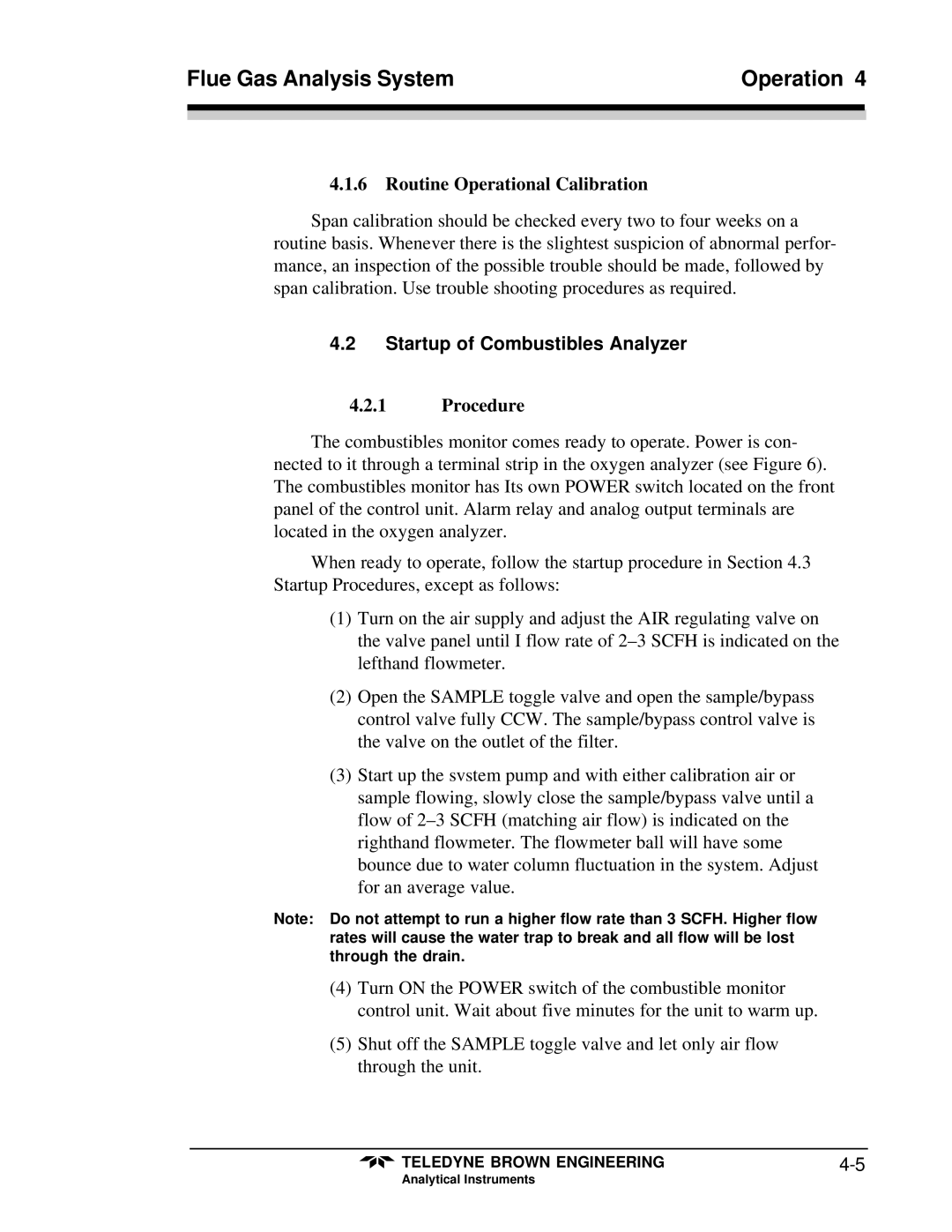
|
| Flue Gas Analysis System | Operation 4 | |
|
|
|
|
|
|
|
|
|
|
|
|
|
|
|
|
|
|
|
|
4.1.6 Routine Operational Calibration
Span calibration should be checked every two to four weeks on a
routine basis. Whenever there is the slightest suspicion of abnormal perfor- mance, an inspection of the possible trouble should be made, followed by span calibration. Use trouble shooting procedures as required.
4.2Startup of Combustibles Analyzer
4.2.1Procedure
The combustibles monitor comes ready to operate. Power is con- nected to it through a terminal strip in the oxygen analyzer (see Figure 6). The combustibles monitor has Its own POWER switch located on the front panel of the control unit. Alarm relay and analog output terminals are located in the oxygen analyzer.
When ready to operate, follow the startup procedure in Section 4.3 Startup Procedures, except as follows:
(1)Turn on the air supply and adjust the AIR regulating valve on the valve panel until I flow rate of
(2)Open the SAMPLE toggle valve and open the sample/bypass control valve fully CCW. The sample/bypass control valve is the valve on the outlet of the filter.
(3)Start up the svstem pump and with either calibration air or sample flowing, slowly close the sample/bypass valve until a flow of
Note: Do not attempt to run a higher flow rate than 3 SCFH. Higher flow rates will cause the water trap to break and all flow will be lost through the drain.
(4)Turn ON the POWER switch of the combustible monitor control unit. Wait about five minutes for the unit to warm up.
(5)Shut off the SAMPLE toggle valve and let only air flow through the unit.
TELEDYNE BROWN ENGINEERING |
Analytical Instruments
